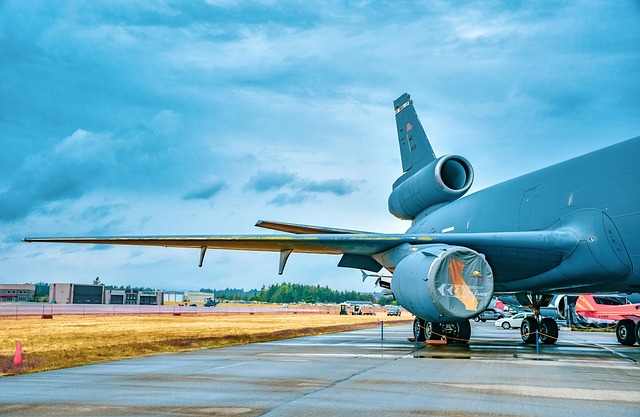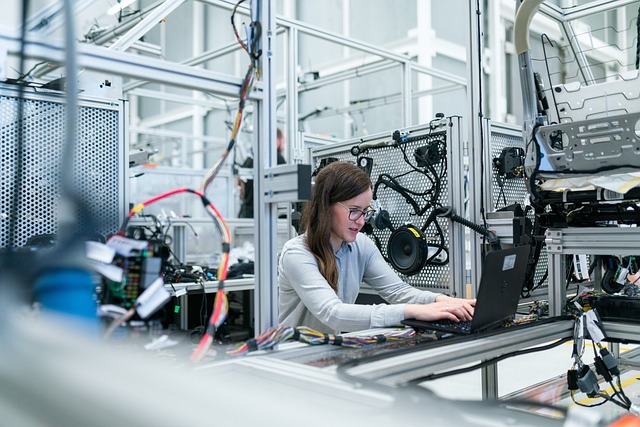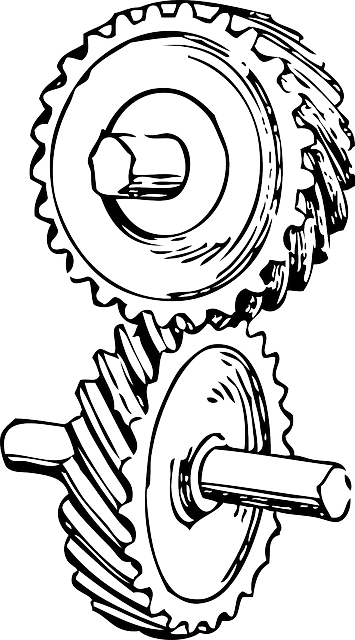Before pursuing aerospace engineering, assess your interest and aptitude, build a strong foundation in math and science, develop programming skills, familiarize yourself with industry software, engage in extracurriculars and internships, and cultivate effective study habits to ensure success in this challenging yet rewarding field.
Aspiring aerospace engineers, this guide is your compass as you navigate the exciting journey towards a degree in one of the most innovative fields. With 10 essential tips, we’ll walk you through the crucial steps to prepare from high school level onwards. From cultivating an interest and strengthening academic foundations to mastering programming and familiarizing yourself with industry software, each section equips you with the tools needed to build a solid career in aerospace engineering. Let’s begin your path to success!
- Assess Your Interest & Aptitude for Aerospace Engineering
- Strengthen Math & Science Foundations in High School
- Build Programming Skills: Essential for Aerospace Modeling
- Familiarize Yourself with Aerospace Engineering Software
- Explore Extra-Curricular Activities and Internships
- Develop Effective Study Habits for Engineering Success
Assess Your Interest & Aptitude for Aerospace Engineering

Before diving into your aerospace engineering studies, it’s crucial to assess whether this field aligns with your interests and aptitudes. Aerospace engineering is a highly specialized and demanding discipline that requires a unique blend of technical skills, analytical thinking, problem-solving abilities, and a genuine passion for aviation and space exploration. Take the time to reflect on why you’re drawn to aerospace and what aspects excite you the most—whether it’s designing cutting-edge aircraft, understanding complex physics behind rocket propulsion, or contributing to the advancement of space technology.
This self-reflection will help guide your preparation efforts. If you find yourself captivated by the technical challenges and innovative possibilities, then you’re on the right path. Start exploring introductory aerospace courses, reading books, and following industry news to build a foundational knowledge base. This initial assessment will ensure that your academic journey is both fulfilling and aligned with your natural inclinations, setting you up for success in the world of aerospace engineering.
Strengthen Math & Science Foundations in High School

Building a solid foundation in mathematics and science is paramount for aspiring aerospace engineers. High school students should focus on excelling in core subjects like physics, chemistry, and calculus as these form the backbone of many advanced concepts in aerospace engineering. These subjects not only provide essential problem-solving skills but also cultivate critical thinking, which is vital when tackling complex engineering challenges.
Encourage your high schooler to engage with challenging math and science courses, such as advanced placement (AP) or International Baccalaureate (IB) options if available. These courses offer a more in-depth look at key topics and prepare students for the rigorous academic demands of university-level aerospace engineering programs. Additionally, fostering a habit of consistent study and practice will ensure they are well-prepared to tackle the mathematical and scientific rigors that lie ahead.
Build Programming Skills: Essential for Aerospace Modeling

Building programming skills is crucial for aspiring aerospace engineers, as it forms the backbone of many advanced modeling and simulation tools used in the industry. Proficiency in programming allows engineers to create intricate computer models of aircraft or spacecraft systems, perform complex calculations, and analyze vast amounts of data. Start by familiarizing yourself with popular programming languages like Python, MATLAB, or C++, which are widely used in aerospace applications. These languages offer specialized libraries and frameworks tailored for engineering tasks, making them powerful tools for modeling and optimization.
Consider taking online courses or workshops focused on programming for engineers to gain hands-on experience. Practice coding challenges related to Aerospace Engineering problems, such as trajectory planning, fluid dynamics simulations, or structural analysis. Developing strong programming skills will not only enhance your ability to model and simulate complex systems but also open doors to various research opportunities and career paths within the dynamic field of aerospace engineering.
Familiarize Yourself with Aerospace Engineering Software

As an aspiring aerospace engineer, getting acquainted with the software used in the field is a crucial step in your preparation. Many design and simulation tools are industry standards, and learning them early will give you a significant advantage when you begin university-level studies. Software like CAD (Computer-Aided Design) programs, such as AutoCAD or SolidWorks, is essential for creating detailed technical drawings. These tools allow engineers to model and visualize complex aircraft structures and components.
Additionally, simulation software plays a vital role in testing and optimizing aerospace designs. Programs like ANSYS or MATLAB enable engineers to run simulations, analyze flight dynamics, predict structural performance under various conditions, and more. Familiarizing yourself with these software packages will not only make your transition to university courses smoother but also prepare you to contribute effectively to real-world aerospace projects during your studies and future career.
Explore Extra-Curricular Activities and Internships

Engaging in extra-curricular activities and internships is a pivotal aspect of preparing for a degree in Aerospace Engineering. These opportunities allow students to apply theoretical knowledge in practical settings, fostering a deeper understanding of aerospace concepts. Participation in model rocketry clubs, robotics teams, or aviation student organizations can provide hands-on experience with aircraft design, propulsion systems, and flight dynamics.
Internships at aerospace companies, research institutions, or even local airports offer invaluable industry exposure. Future engineers can learn about engineering practices, collaborate with professionals, and potentially contribute to real-world projects. These experiences not only enhance technical skills but also develop crucial soft skills like teamwork, communication, and problem-solving – all essential for success in the competitive field of aerospace engineering.
Develop Effective Study Habits for Engineering Success

Developing effective study habits is paramount when preparing for an aerospace engineering degree. It’s a field that demands deep understanding and consistent application of complex theories and concepts. Future engineers should aim to cultivate a disciplined approach to learning, setting aside dedicated time each day for focused study sessions.
Organized note-taking, active engagement with course materials, and practicing problem-solving are key components of successful engineering studies. Utilizing resources like textbooks, online forums, and study groups can enhance understanding and provide different perspectives on challenging topics. Developing these habits early will not only facilitate a smoother transition to university but also set the foundation for a rewarding career in aerospace engineering.
Preparing for a degree in aerospace engineering requires a combination of academic rigor, practical skills, and a genuine passion for the field. By assessing your interest, strengthening math and science foundations, building programming proficiency, familiarizing yourself with industry software, exploring extracurriculars and internships, and developing effective study habits, you’ll be well on your way to success in aerospace studies. Remember, a strong preparation today paves the path for innovative contributions tomorrow.
